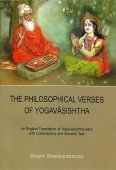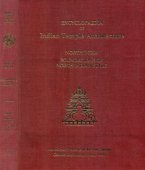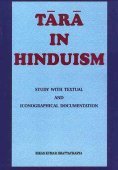Kashmir, Kashmīr: 4 definitions
Introduction:
Kashmir means something in Hinduism, Sanskrit, the history of ancient India. If you want to know the exact meaning, history, etymology or English translation of this term then check out the descriptions on this page. Add your comment or reference to a book if you want to contribute to this summary article.
In Hinduism
Chandas (prosody, study of Sanskrit metres)
Source: Shodhganga: a concise history of Sanskrit Chanda literatureKashmir, the ancient land of learning has produced many eminent scholars who greatly contributed to Sanskrit Literature. Kṣemendra (the polymath) is one among the Kashmiri scholars who glorified the legacy of rhetorics with a new interpretation of the soul of poetry namely aucitya.

Chandas (छन्दस्) refers to Sanskrit prosody and represents one of the six Vedangas (auxiliary disciplines belonging to the study of the Vedas). The science of prosody (chandas-shastra) focusses on the study of the poetic meters such as the commonly known twenty-six metres mentioned by Pingalas.
Shaiva philosophy
Source: Google Books: The Recognition SutrasThe lush and verdant Valley of Kashmir, at the cultural crossroads far to the north of the Indian subcontinent, was one of the key heartlands of nondual Śaiva Tantra, and the original setting for the development of its Recognition school of philosophy. The writings of Tantrik authors from Kashmir are often collectively referred to as ‘Kashmir Shaivism’, but this is a modern term (originating in the early twentieth century), and in fact there was nothing specifically Kashmiri about the Śaiva Tantrik tradition. However, certain schools of thought within non-dual Śaiva Tantra, like the Recognition and Spanda schools, did originate in the Valley of Kashmir, where the rulers were faithful patrons of the tradition up until the Muslim conquest in the early 1300s.
The Kashmir valley was and is incredibly beautiful, with its towering mountains, verdant hardwood forests, waterfalls, and rivers, and modest homes built from native woods. Think Switzerland for its natural beauty and craftsmanship, but with a much more diverse culture that derived from being a meeting point for travelers and merchants from India, Persia, China, Mongolia, Tibet, and Chinese Turkestan. In the time of Kṣemarāja, Kashmir was a Tantrik kingdom, which means the rulers were (usually) Tantrik initiates who generously patronized the tradition.
-
India history and geography
Source: archive.org: Nilamata Purana: a cultural and literary study (history)Kashmir is the name of a valley, to which the Nīlamata gives the name Kaśmīrā, and which is still known as Kaśmīra throughout India and the rest of the world and is called by the Kāśmīrīs in their own language, as Kaśīr—a direct phonetic derivative of Kaśmīra through Kaśvīr. Nīlamata also gives two popular etymologies deriving the name from kaḥ (Prajāpati Kaśyapa) and kam (water).
Note: Nīlamata, vv 5, 12,24, 29, 220, 228, 235 etc. give Kaśmīrā, the term ‘Kaśmīra’ is rare in the Nīlamata (vv. 989, 1354), while the word ‘Kāśmīra’ is found as an adjective. Stein takes Ptolomy’s Kaspiria and Dionysios’s Kaspeiroi as transcription of Kaśvīr. (Rājata. Translation, Vol. II. pp. 352-53)
Kaśmīra valley proper, we know, is just a basin surrounded by snow-capped mountains and the Nīlamata refers to these mountain walls when it speaks of Kaśmīra’s geographically fortified position eliminating the fear of foreign invasions. Kalhaṇa, too, is proud of these mountain barriers. Tsang and Ou Kong who visited the valley, have recognised this fact in their accounts.
Source: Shodhganga: Kasyapa Samhita—Text on Visha Chikitsa (history)Kashmir region in the northern province of the Indian sub-continent could have derived its name from Kaśyapa-Ṛṣi, according to the opinion of some scholars. Christopher Snedden is of the opinion that the name Kashmir may be an abbreviated form of ‘Kaśyapa Mir’ or the lake of sage Kaśyapa. Ancient Greek texts narrating the expeditions of Alexander, the Great, mention this name as ‘Kasperia’, possibly a concised version of ‘Kaśyapamir’. Kāśyapa, the legendary sage was an accomplished scholar in the Vedas, Āyurveda, Dharmaśāstra, Śilpaśāstra, Kṛṣivijñāna (Agricultural Science), Saṅgītaṣāstra and so on.

The history of India traces the identification of countries, villages, towns and other regions of India, as well as mythology, zoology, royal dynasties, rulers, tribes, local festivities and traditions and regional languages. Ancient India enjoyed religious freedom and encourages the path of Dharma, a concept common to Buddhism, Hinduism, and Jainism.
See also (Relevant definitions)
Starts with (+24): Kashmir Shaivism, Kashmir tree, Kashmir Women, Kashmir zireh, Kashmira, Kashmirabhumi, Kashmiradesha, Kashmiraja, Kashmirajala, Kashmirajanma, Kashmirajanman, Kashmirajiraka, Kashmiraka, Kashmirakeshara, Kashmiralinga, Kashmiram, Kashmiramahatmya, Kashmiramandala, Kashmiramandalam, Kashmiramu.
Ends with: Kesar kashmir, Poisonous grass of kashmir.
Full-text (+696): Kashmira, Anantapala, Madhumata, Anangadevi, Svacchandatantra, Tantraloka, Kshemaraja, Anangalekha, Anangapala, Anangapida, Kashmiraja, Darada, Kacumiram, Kashmir tree, Kesar kashmir, Northern India, Kashmir zireh, Aconitum kashmiricum, Hushkapura, Jushkapura.
Relevant text
Search found 108 books and stories containing Kashmir, Kashmīr; (plurals include: Kashmirs, Kashmīrs). You can also click to the full overview containing English textual excerpts. Below are direct links for the most relevant articles:
The Kashmir Tangle < [October 1950]
Mountbatten and Kashmir < [October 1951]
Kashmir and the Fine Arts < [May 1937]
Lakulisha-Pashupata (Philosophy and Practice) (by Geetika Kaw Kher)
Traces of Lakulisa-Pasupata order in North India < [Chapter 2 - Spread and Transition]
Kalamukhas: The politically organized Saivite ascetics < [Chapter 2 - Spread and Transition]
Appendix 2 - An Enquiry into the Sectarian Affiliation of the Ruins at Harwan
The backdrop of the Srikanthacarita and the Mankhakosa (by Dhrubajit Sarma)
Part 5 - Some prominent Kashmiri Sanskrit poets < [Chapter I - Introduction]
Part 8 - Geographical information (found in the Śrīkaṇṭhacarita) < [Chapter IV - Socio-cultural study of the Śrīkaṇṭhacarita]
Part 10 - Administration and warfare (found in the Śrīkaṇṭhacarita) < [Chapter IV - Socio-cultural study of the Śrīkaṇṭhacarita]
Gitartha Samgraha (critical Study) (by Partha Sarathi Sil)
3. Tattvas (Principles) of Kashmir Śaivism < [Chapter 3 - A Brief Sketch of Kashmir Śaivism]
2. The text of the Gītārthasaṅgraha < [Chapter 2 - Abhinavagupta and the Gītārthasaṅgraha]
Cidgaganacandrika (study) (by S. Mahalakshmi)
Part 2a - Trika Philosophy (Introduction) < [Krama system and Trika school]
Part 3 - Philosophical aspects of Kashmir Śaivism < [Krama system and Trika school]
Part 1a - Krama system (Introduction) < [Krama system and Trika school]
Vastu-shastra (5): Temple Architecture (by D. N. Shukla)
Temple architecture in Kashmir < [Chapter 12 - History of Hindu Temples (Prāsādas and Vimānas)]
Bhaumika Vimānas (Temples of South India, Decan and Greater India) < [Chapter 12 - History of Hindu Temples (Prāsādas and Vimānas)]
Related products
(+2 more products available)





